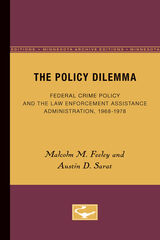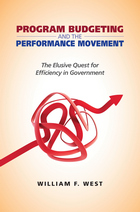5 start with P start with P


To many the goal of the Polaris program seemed unachievable when first proposed: to produce a ballistic missile with a range of over a thousand miles that would be capable of being launched from a submerged submarine. Today a fleet of Polaris-carrying submarines constantly patrols beneath the seas as a key element in a national strategy of deterrence. Harvey Sapolsky examines the Polaris missile program, one of the most costly and successful ever undertaken by the federal government, and describes the bureaucratic strategies the Polaris proponents employed to control the threatening environment.
Sapolsky points out that the Program Evaluation and Review Technique (PERT), which gained the program a worldwide reputation for managerial innovativeness, was as much a device to protect the program from external interference as an effective management tool. The book should be valuable to those concerned with bureaucratic politics, management techniques, weapons procurement, and arms control problems as well as to those who seek to understand the operations of American government.


A CounterPunch Best Book of the Year
A Lone Star Policy Institute Recommended Book
“If you care, as I do, about disrupting the perverse politics of criminal justice, there is no better place to start than Prisoners of Politics.”
—James Forman, Jr., author of Locking Up Our Own
The United States has the highest rate of incarceration in the world. The social consequences of this fact—recycling people who commit crimes through an overwhelmed system and creating a growing class of permanently criminalized citizens—are devastating. A leading criminal justice reformer who has successfully rewritten sentencing guidelines, Rachel Barkow argues that we would be safer, and have fewer people in prison, if we relied more on expertise and evidence and worried less about being “tough on crime.” A groundbreaking work that is transforming our national conversation on crime and punishment, Prisoners of Politics shows how problematic it is to base criminal justice policy on the whims of the electorate and argues for an overdue shift that could upend our prison problem and make America a more equitable society.
“A critically important exploration of the political dynamics that have made us one of the most punitive societies in human history. A must-read by one of our most thoughtful scholars of crime and punishment.”
—Bryan Stevenson, author of Just Mercy
“Barkow’s analysis suggests that it is not enough to slash police budgets if we want to ensure lasting reform. We also need to find ways to insulate the process from political winds.”
—David Cole, New York Review of Books
“A cogent and provocative argument about how to achieve true institutional reform and fix our broken system.”
—Emily Bazelon, author of Charged

Formal systems of comprehensive planning and performance-based management have a long if disappointing history in American government. This is illustrated most dramatically by the failure of program budgeting (PPB) in the 1960s and resurrection of that management technique in a handful of agencies over the past decade. Beyond its present application, the significance of PPB lies in its relationship to the goals and assumptions of popular reforms associated with the performance movement.
Program Budgeting and the Performance Movement examines PPB from its inception in the Department of Defense under Robert McNamara to its limited resurgence in recent years. It includes an in-depth case study of the adoption and effects of PPB at the National Oceanic and Atmospheric Administration. The fact that program budgeting is subject to the same limitations today that led to its demise four decades ago speaks to the viability of requirements, such as those imposed by the Government Performance and Results Act, that are designed to make government more businesslike in its operations.
READERS
Browse our collection.
PUBLISHERS
See BiblioVault's publisher services.
STUDENT SERVICES
Files for college accessibility offices.
UChicago Accessibility Resources
home | accessibility | search | about | contact us
BiblioVault ® 2001 - 2024
The University of Chicago Press









